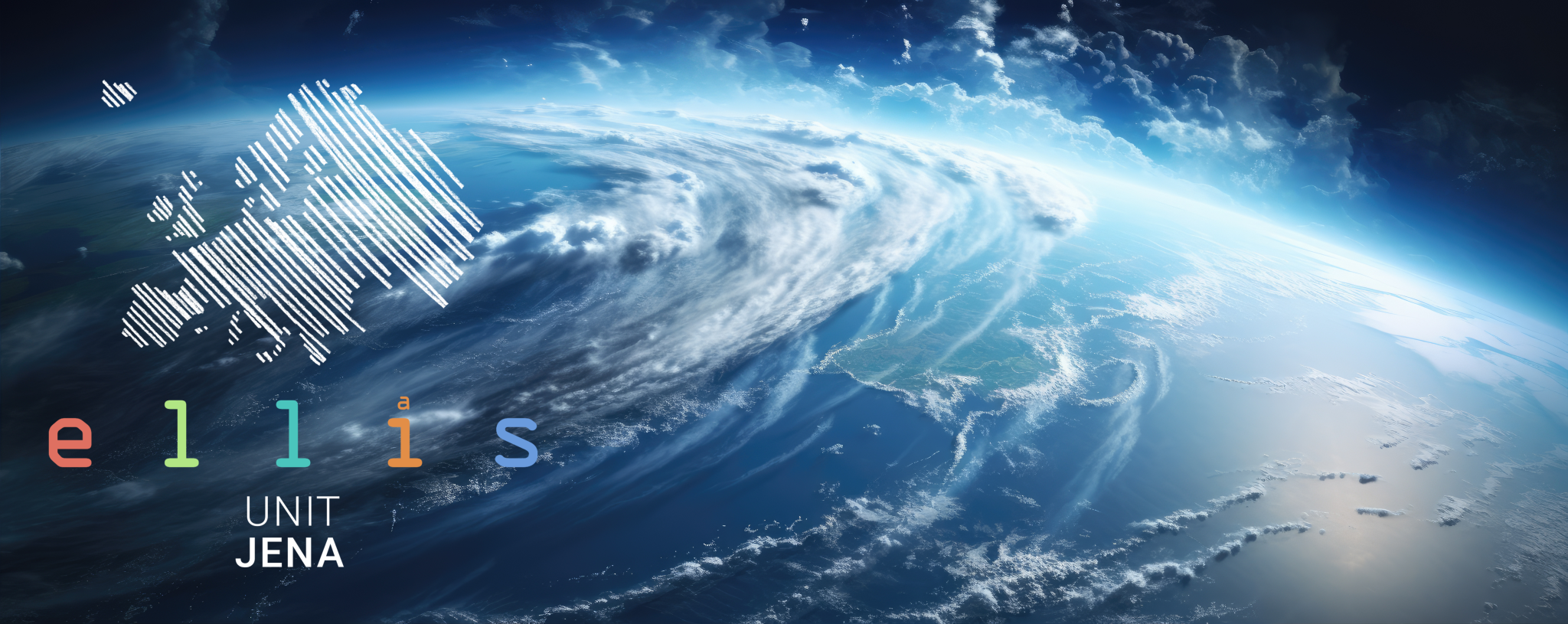
AI4EWS 2023
Artificial Intelligence for Climate Risk Mitigation
Navigating Opportunities and Challenges
October 22nd 2023 @ WCRP Open Science Conference (Kigali, Rwanda)
BLOG: Artificial intelligence and anticipatory action: a conversation
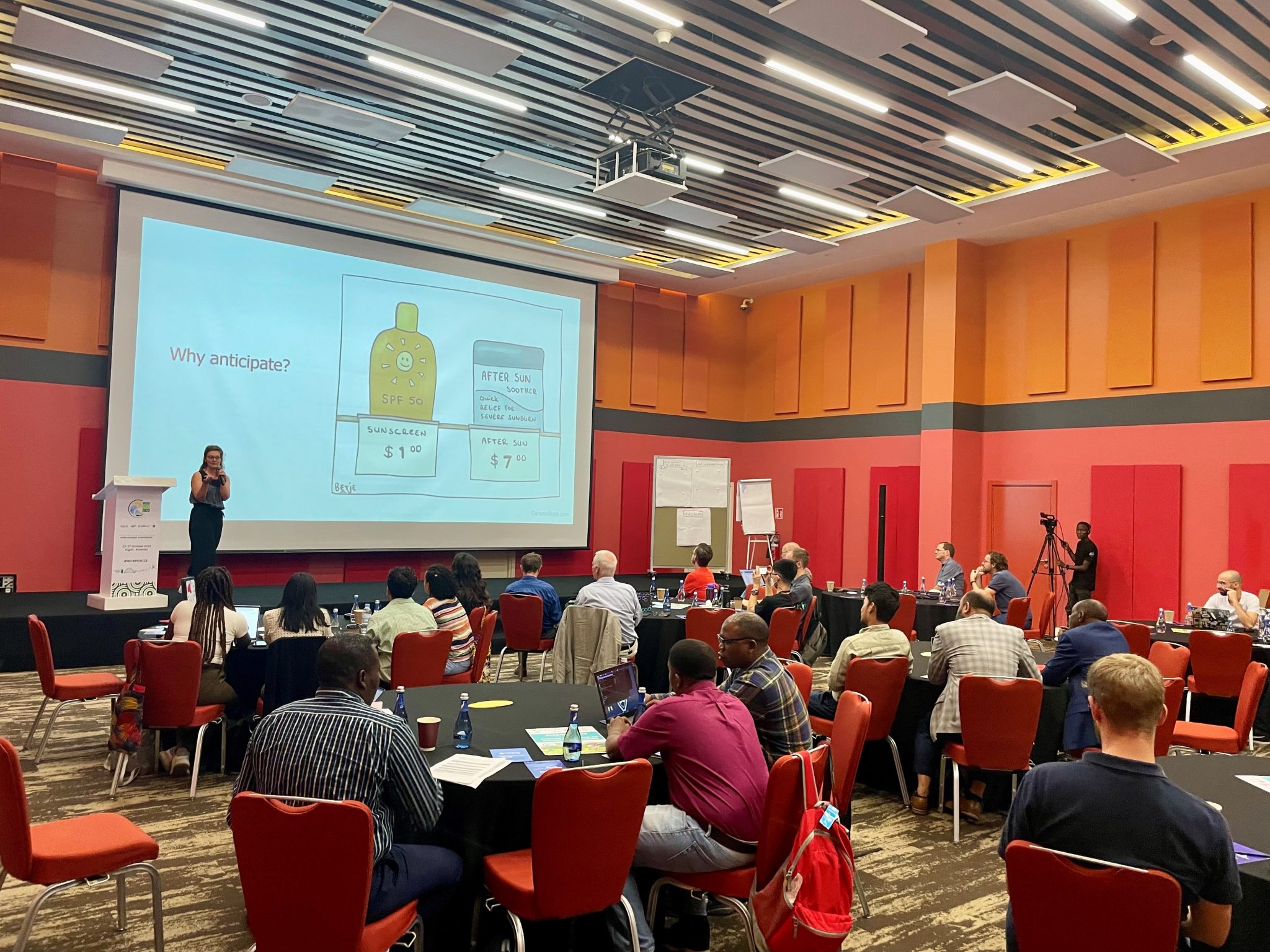
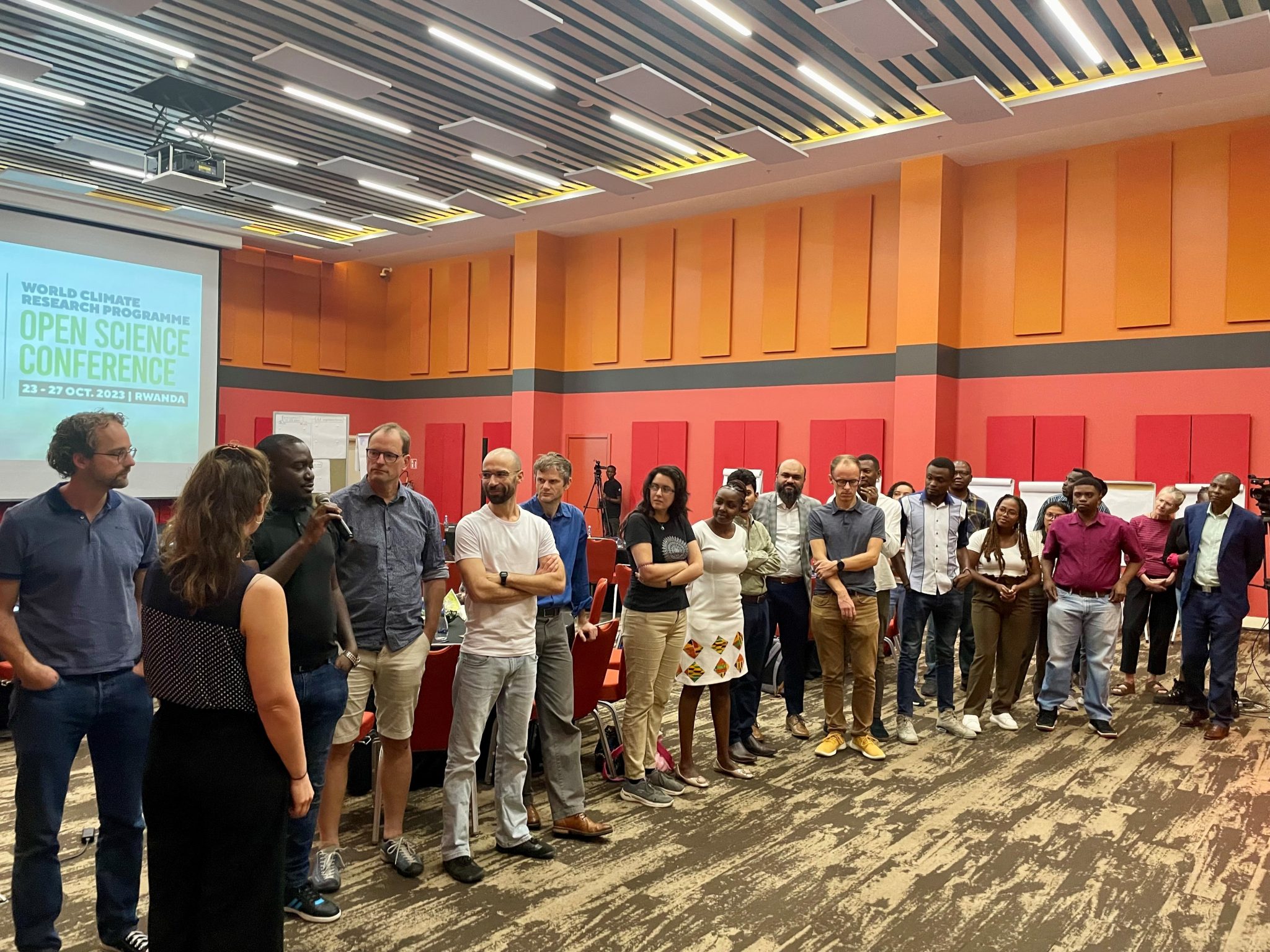
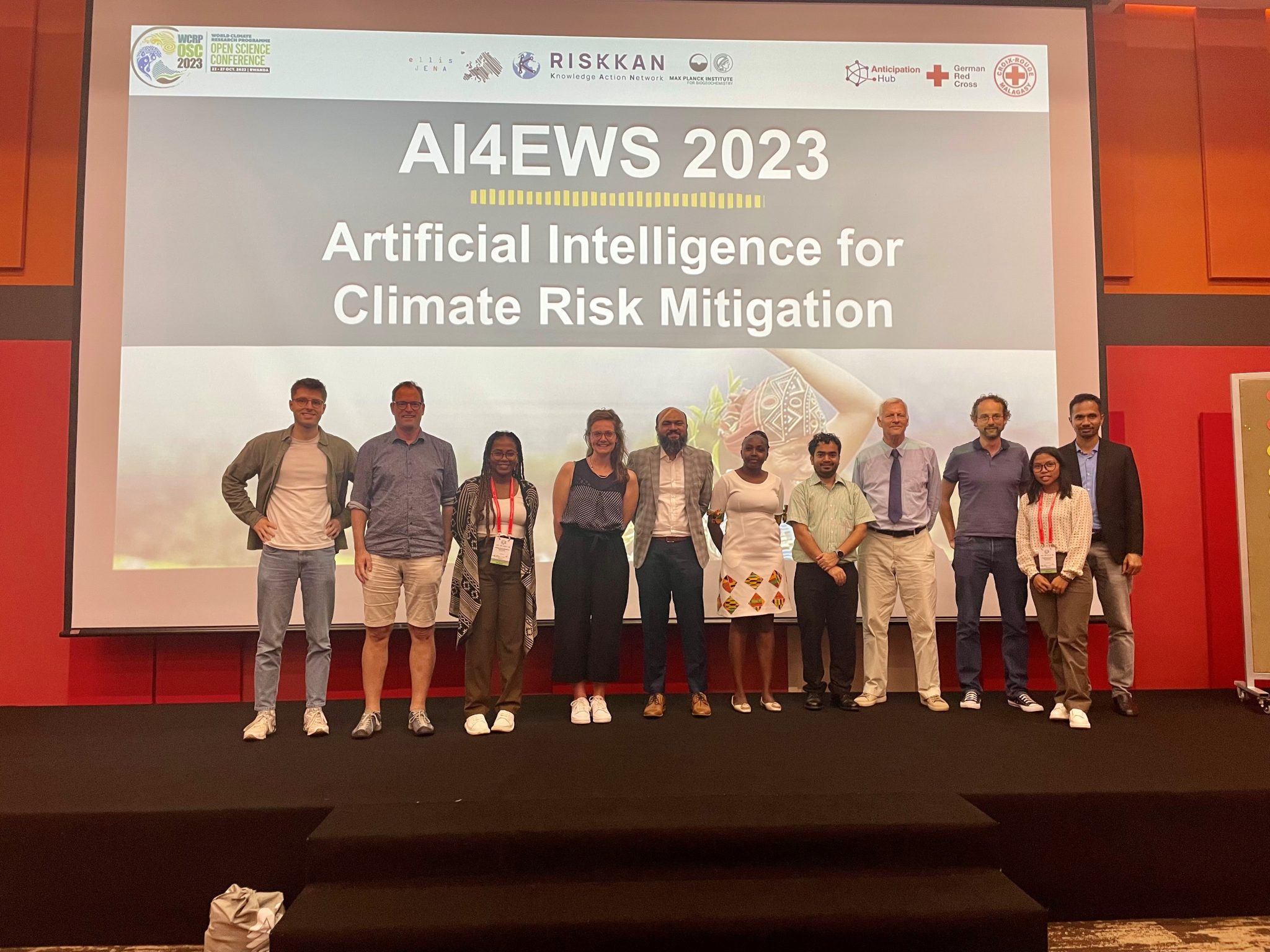
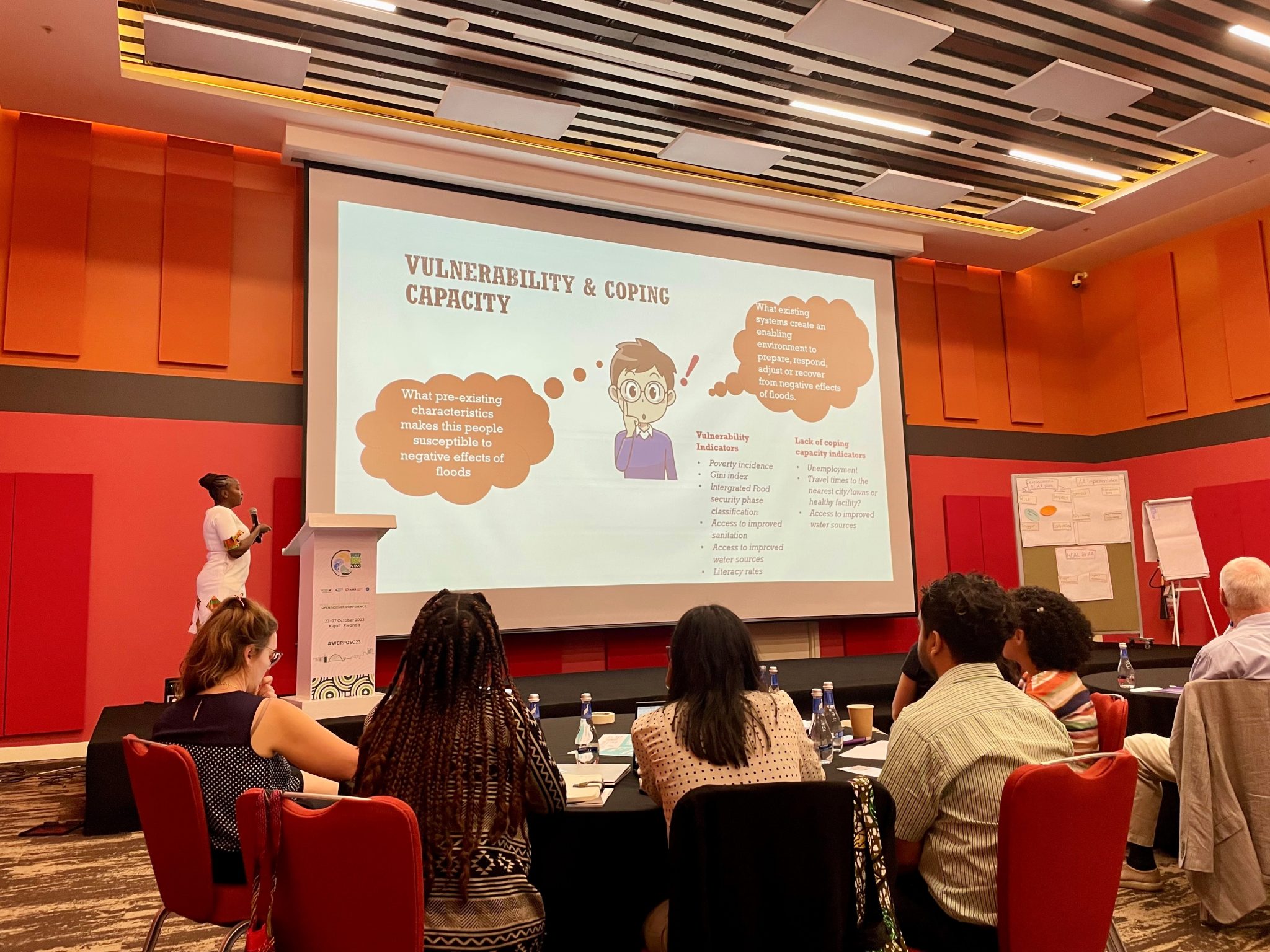
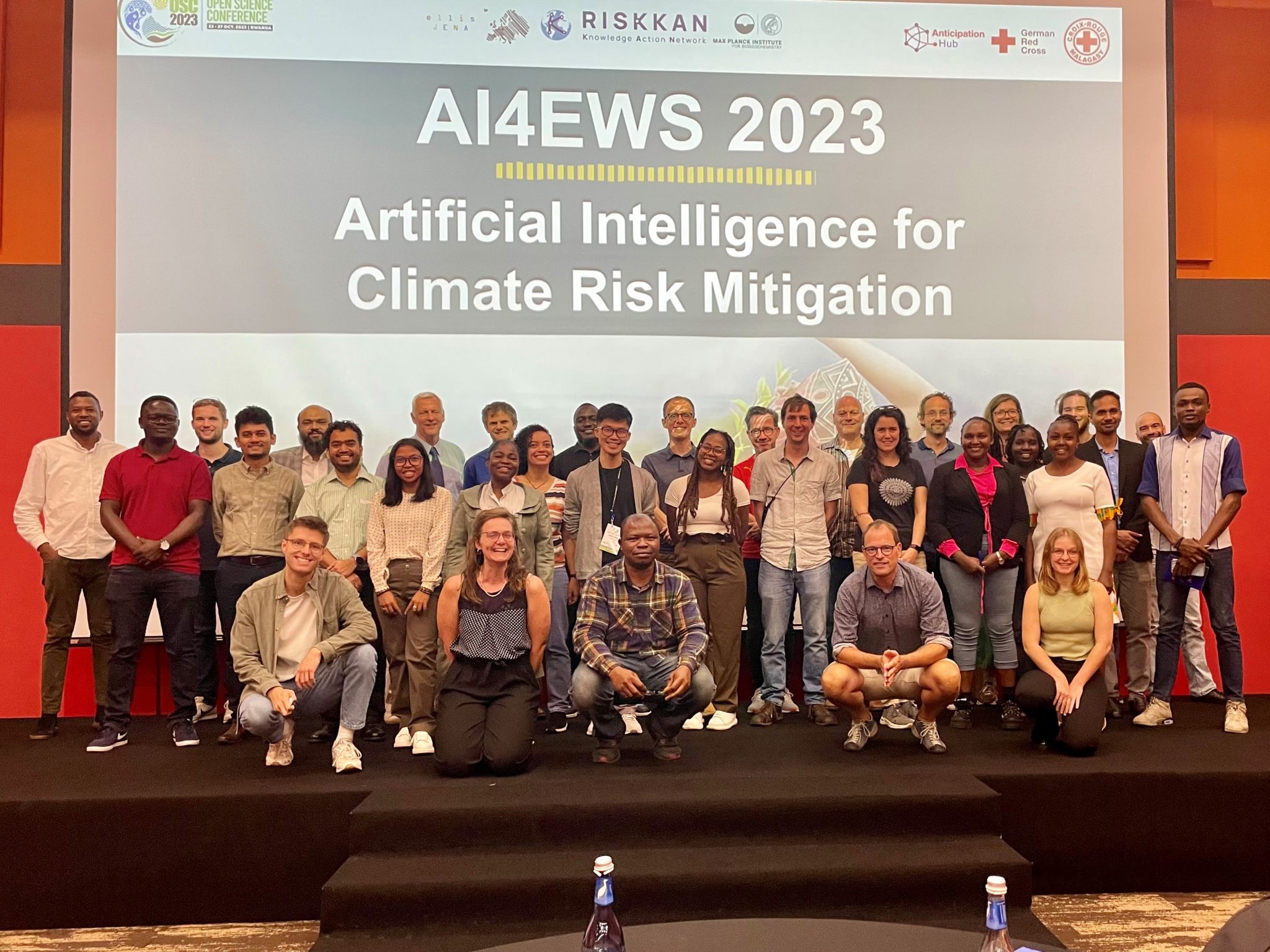
Introduction
Climate-related risks threaten lives and livelihoods along the globe. Floods, Droughts, Heatwaves, Tropical Storms, and Wildfires are among the most devastating natural hazards. Forecasts and Early Warning of Hazards and their induced impacts gives means to mitigate damages. Weather forecasts for fast-onset hazards such as floods and seasonal forecasts for slow-onset hazards such as drought are used in anticipatory action to protect lives and livelihood before the disaster strikes. Beyond that time-scale preparedness and targeted longer term social and material investments can help reduce vulnerability, and thus risk. For a prioritization of measures an anticipation of longer-term vulnerabilities is important. We conjecture that recent developments in AI can help for both time-scales.
Through this workshop organized by the RISK KAN, ELLIS Unit Jena, German Red Cross and Croix Rouge Malagasy, we intended to explore if, how, and where Artificial Intelligence promised to fundamentally push climate risk mitigation. For this purpose, we established a dialogue between humanitarian practitioners and machine learning researchers. We discussed recent advances in AI for early warning, remaining challenges in the field, and possible ways forward to make AI accessible for the humanitarian community.
Invited Speakers

Anastasiya Shyrokaya
Uppsala University

Jessica Razaiarinoro Safidiniaina
Croix Rouge Malagasy

Md Nasir
Microsoft AI for Good

Naomi Ng'ang'a
Kenya Red Cross
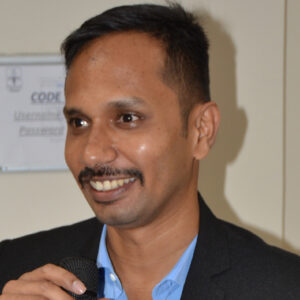
Nishadh Kalladath
IGAD Climate Prediction and Applications Centre (ICPAC) / NORCAP

Peter Düben
European Centre for Medium-Range Weather Forecasts (ECMWF)
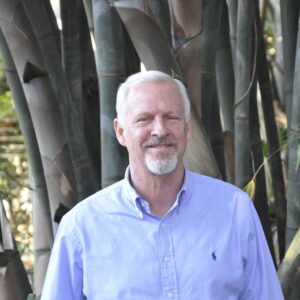
Peter Gilruth
World Agroforestry (ICRAF)
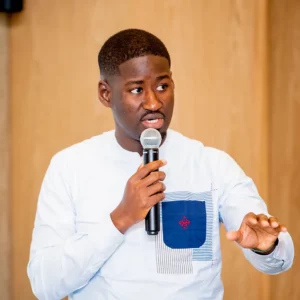
Racine Ly
AKADEMIYA2063

Raihanul Haque Khan
Regional Integrated Multi-Hazard Early Warning System (RIMES)
More Coming Soon.
Schedule
| 9:30 | Arrival and Badge Pick Up |
| Setting the scene | |
| 10:00 | Introduction to the workshop
Ignite presentations:
|
| Impact-based forecasting for drought | |
| 11:30 | Malagasy case study: Experiences with drought Ignite presentations with speakers from Uppsala University, Akademiya2063 and Max Planck Group discussions |
| 13:00 | Lunch |
| Understanding risks and impacts: exposure and vulnerability | |
| 14:00 | Malagasy case study: Understanding risks Ignite presentations with speakers from Microsoft, Kenya Red Cross and ICRAF Group discussions |
| The next generation of flood and storm forecasting | |
| 15:45 | Malagasy case study: Responding to floods and storms Ignite presentations with speakers from ECMWF, ICPAC and RIMES Group discussions |
| What is next? Consolidating the discussion! | |
| 17:00 | Critical reflections and discussion of the way forward in an interactive format |
| 18:00 | End of the workshop |
Organizers

Vitus Benson
Max Planck Institute for Biogeochemistry

Karen Dall
German Red Cross

Markus Reichstein
Max Planck Institute for Biogeochemistry
